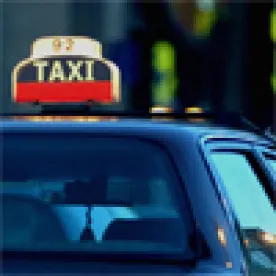Disruptive “technology” companies Uber and Lyft were back in court recently doing their best to ensure their business models are not upended by a ruling that their drivers should be classified as employees rather than independent contractors. On back to back January days, federal courts in California heard arguments from Uber, Lyft and their drivers as the respective parties all seek to convince the court to rule in their favor over the proper classification.
Uber and Lyft connect drivers of “black cars,” or “livery cars” with passengers via a software application or “app,” and collect a % of the fare in exchange. Several drivers sued Uber and Lyft in separate lawsuits in California claiming that Uber or Lyft misclassified them as independent contractors when they were in fact employees. At the end of January, each court heard oral arguments over the classification issue and each judge made statements during those arguments that demonstrated the difficulty in determining proper classification.
The judge in the Uber case stated “[i]t’s never easy. There’s not just one factor you can point to and say ‘Boom, that’s it.’” The judge in the Lyft case noted that the test for classification has not kept pace with technology and the changing workforce, noting “California law defines whether workers are employees or independent contractors, and there’s a test, but the test and classification system are woefully outdated . . . . It seems to me, as a matter of common sense, that Lyft drivers don’t fall into the traditional understanding” of [the two classifications.] They seem to fall into a third category.”
The plaintiffs in both cases noted that they could be terminated if they did not accept a certain number of passengers. Both Uber and Lyft countered that, even so, they did not control the drivers and rather provided only a platform, or referral service, to connect drivers and passengers, even though the drivers are an integral part of its business. Indeed, as the judge noted in Uber, without the drivers the company could not operate or exist. Based on comments by the judges, it appears that both cases will likely go to a jury.
Employers that engage independent contractors should review closely the services the independent contractor will provide and the level of control the employer will have over the services (i.e., the when, where and how). The Uber and Lyft cases are difficult, as the judges made clear; they operate in the difficult grey are of classification analysis. The outcome of the Uber and Lyft cases will have wide-ranging ramifications for employers.





 />i
/>i
